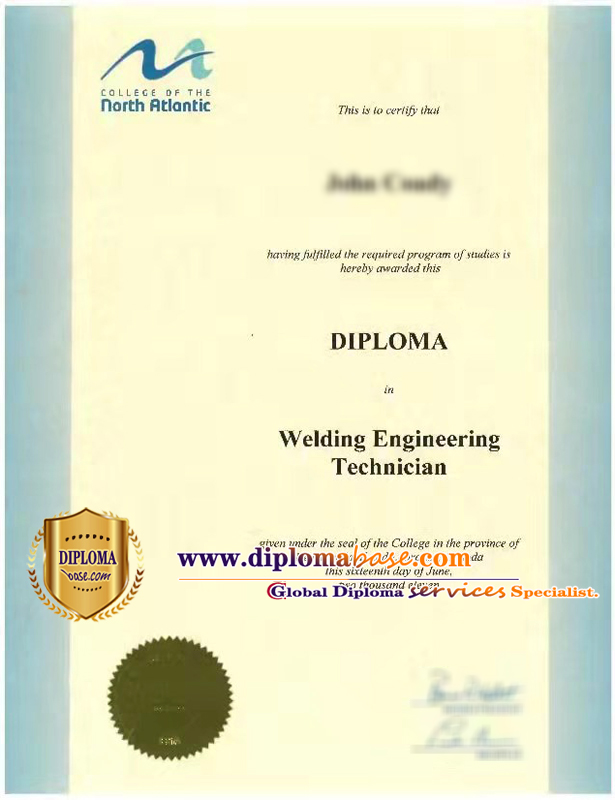
Quick purchase of a fake Bachelor’s degree from the College of the North Atlantic? Can I get a fake diploma in Canada? Purchase College of the North Atlantic transcripts safely online. How about the College of the North Atlantic? What programs does the College of the North Atlantic offer?
1.Basic information.How to get a fake Degree Certificate quickly?
Location: Newfoundland
City: St. John’s
Established in 1997
School orientation: community \ occupation \ junior college
Dual enrollment: Supported
The College of the North Atlantic is located in Newfoundland and Labrador and consists of 18 campuses throughout the province. Formed in 1997 by the union of five public colleges, it is the province’s one public college. It is one of the largest post-secondary and vocational skills training centres in Atlantic Canada, offering more than 70 full-time programs and more than 300 part-time programs. Many of the 18 campuses have long histories.How to buy a fake degree from University of Saskatchewan safely and quickly?
2.University profile.
The College of the North Atlantic Canada is located in Newfoundland and Labrador and consists of 18 campuses throughout the province. Formed in 1997 by the union of five public colleges, it is the province’s one public college. It is one of the largest post-secondary and vocational skills training centres in Atlantic Canada, offering more than 70 full-time programs and more than 300 part-time programs. Many of the 18 campuses have long histories.
The school produces about 3,000 graduates a year. The education is employment-oriented, with courses in applied arts, business, health sciences, industrial education and trade, natural resources, information technology and ESL (English as a Second Language). One to three years of study leads to a vocational certificate or diploma. The school also offers co-operative education through partnerships with industry and commerce, with 15 weeks of paid hands-on learning. The school also has formal agreements with many universities in the United States and Canada, and currently graduates in engineering, community learning, health sciences, and visual arts are able to move from associate degree programs directly to undergraduate programs with little difficulty.
The college has 1,100 teachers, a student-teacher ratio of 10:1, and advanced and well-equipped teaching facilities. Admission is open to Canadian and international students who have completed high school or high school equivalent. (International students should provide academic/level certificates). Before formally entering academic courses, students generally need to complete preparatory courses such as mathematics, English, physics, chemistry and biology. The college also offers a variety of scholarships, grants and award programs.
The College is a member of the Canadian Federation of Community Colleges, the Canadian Agency for International Education and the Canadian World University Service. Its programs are recognized by the province of Newfoundland and Lebrador and by the Government of Canada as having produced many applied technical talents for Newfoundland and Labrador and other Canadian provinces.
